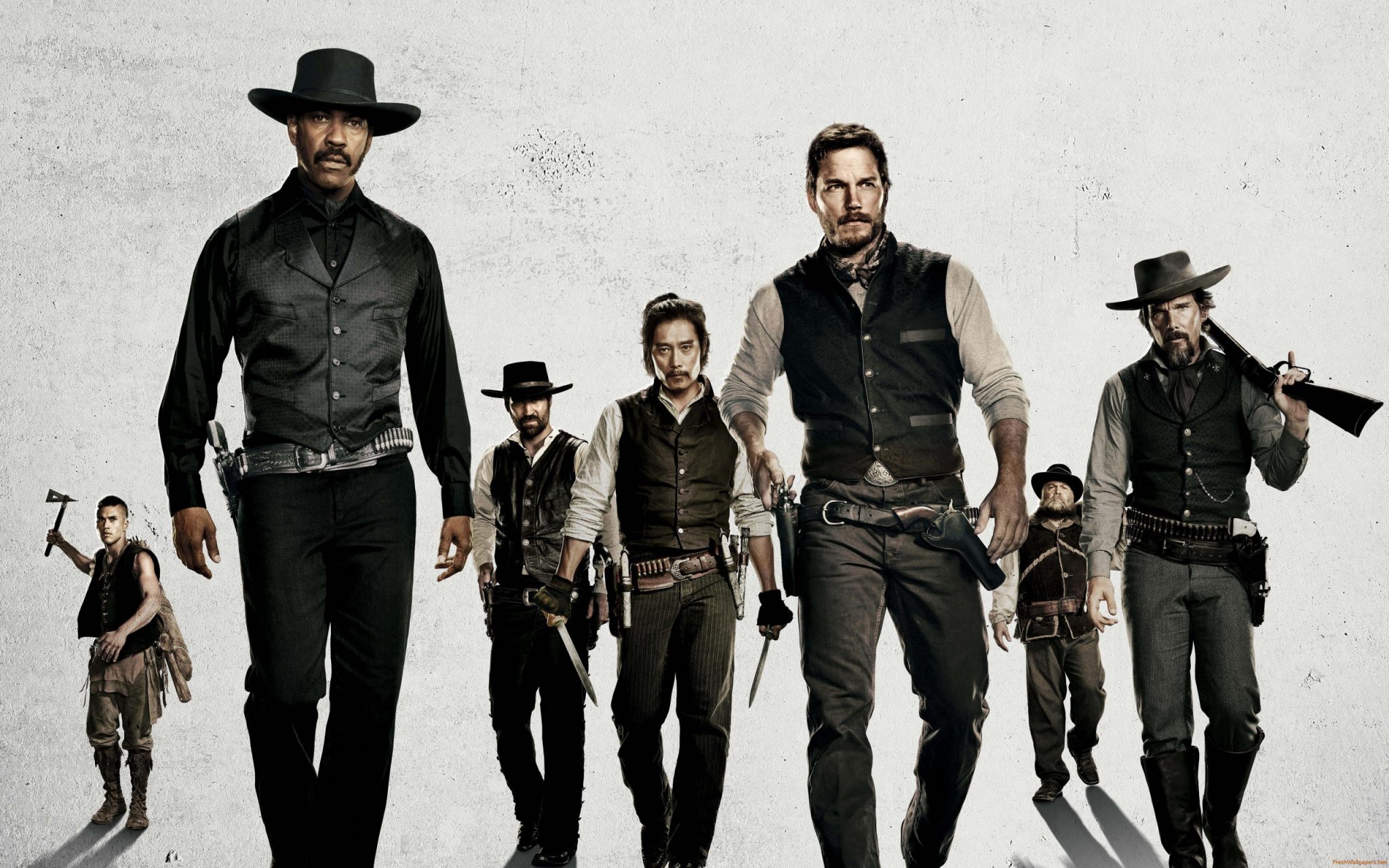The Magnificent Seven

“The Magnificent Seven,” a cinematic masterpiece, stands as a testament to the timeless allure of the Western genre. Directed by John Sturges and released in 1960, this film has left an indelible mark on the world of cinema. Inspired by Akira Kurosawa’s “Seven Samurai,” it takes the essence of the samurai epic and transplants it into the vast landscapes of the American West. With an ensemble cast, breathtaking cinematography, and a compelling narrative, “The Magnificent Seven” has earned its place as a classic.
The Plot:
Set in a small Mexican village terrorized by a ruthless bandit named Calvera, the film follows the villagers as they decide to fight back. Unable to defend themselves, they hire seven gunslingers to protect them from Calvera’s reign of terror. The titular seven, each with their unique skills and personalities, embark on a journey that goes beyond the mere act of saving a village. The film delves into themes of honor, sacrifice, and the concept of heroism in the face of overwhelming odds.
The Characters:
One of the film’s strengths lies in its memorable and diverse cast of characters. Yul Brynner leads the ensemble as Chris Adams, a cool-headed and experienced gunfighter. Steve McQueen, Charles Bronson, James Coburn, Robert Vaughn, Brad Dexter, and Horst Buchholz round out the rest of the magnificent seven, each bringing a distinct flavor to the team. Their chemistry and camaraderie on screen contribute significantly to the film’s success.
The Villains:
Eli Wallach delivers a memorable performance as the charismatic yet menacing Calvera. A complex character, Calvera is not a one-dimensional villain but a product of the harsh circumstances of the time. His interactions with the magnificent seven add layers to the narrative, making the conflict more than a simple clash between good and evil. Calvera becomes a mirror reflecting the complexities of the human condition in a lawless land.
Cinematography:
“The Magnificent Seven” boasts stunning cinematography that captures the vastness and beauty of the American West. Charles Lang’s use of wide shots to showcase the landscapes, combined with intimate close-ups during character-driven scenes, creates a visual experience that enhances the emotional impact of the story. The film’s visual style pays homage to the iconic imagery of classic Westerns, with sweeping vistas, dusty trails, and gunfights at high noon.
Musical Score:
No discussion of “The Magnificent Seven” is complete without acknowledging Elmer Bernstein’s iconic musical score. The film’s theme, with its distinct trumpet melody, has become synonymous with the Western genre itself. Bernstein’s score not only enhances the action but also elevates the emotional depth of the characters and their struggles. The music is a vital component that contributes to the film’s enduring legacy.
Themes and Symbolism:
Beneath the surface of the action-packed storyline, “The Magnificent Seven” explores deeper themes that resonate with audiences. The concept of sacrifice for the greater good, the morality of violence, and the clash between civilization and lawlessness are all woven into the narrative. The film serves as a reflection of societal values, presenting a moral dilemma that transcends the boundaries of time and culture.
Legacy and Impact:
“The Magnificent Seven” has left an indelible mark on popular culture, influencing countless films and TV shows in its wake. The concept of a group of diverse individuals coming together for a common cause has become a storytelling archetype. The film’s success also paved the way for sequels, remakes, and spin-offs, solidifying its status as a classic in the Western genre.
Remakes and Adaptations:
The success of “The Magnificent Seven” has led to several remakes and adaptations over the years. In 2016, a new version directed by Antoine Fuqua hit the screens, featuring Denzel Washington, Chris Pratt, and Ethan Hawke in leading roles. While the remake received mixed reviews, it demonstrated the enduring appeal of the original story and characters.
Conclusion:
“The Magnificent Seven” remains a cinematic masterpiece that transcends its genre. Its compelling characters, gripping storyline, and visual prowess continue to captivate audiences decades after its release. The film’s exploration of timeless themes and its influence on subsequent Westerns make it a cornerstone of cinematic history. As the sun sets on the American West in “The Magnificent Seven,” it leaves an enduring legacy that will be remembered for generations to come.
